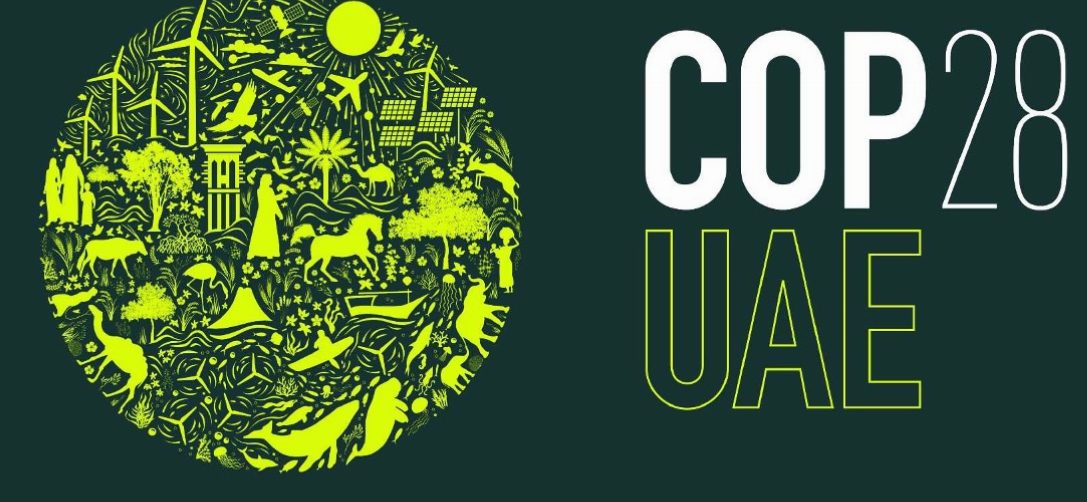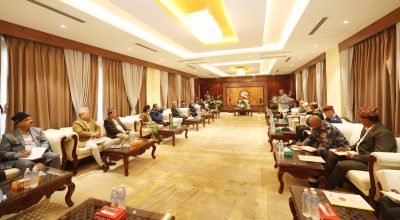
Bhishma Ojha
Kathmandu, Dec 16: The effects of climate change on mountains have been reflected in the decisions of the United Nations Conference on Climate Change (COP-28) for the first time.
In the annual climate conference that took place in Dubai of United Arab Emirates (UAE) from November 30 to December 12 this year, the mountain did not only gather publicity but also get priority.
Mountainous nation, Nepal, has been particularly drawing attention of the globe to the climate change induced impacts on mountain ecosystem since COP-15 that was held in Copenhagen of Denmark in 2009.
In most of the subsequent climate summits since then, Nepal has been emphatically raising the mountain agendas but the efforts did not transform into the outcome.
In the inaugural ceremony of the UN Climate Summit (COP-28), UN secretary-general Antonio Guterres cited Nepal’s reference to deliver his message that global warming has rapidly triggered the trend of iceberg melting.
It may be noted that the UN secretary-general had made on-site observations of the Mount Everest and Annapurna Base Camps during his visit to Nepal on the eve of the COP-28.
The high-level visit had also encouraged Nepal to explore and raise the mountain agenda in the UN conference.
Prime Minister Pushpa Kamal Dahal ‘Prachanda’ had hosted a high-level roundtable meeting in course of the conference as to explore the agendas of mountainous countries.
This was so far the first-ever meeting Nepal hosted and chaired a separate meeting in course of the UN conference on climate change.
The secretary-general had delivered a special address in the meeting while Prime Minister of Andorra, Kirgiz Foreign Affairs Minister and Bhutanese State Secretary, among other dignitaries addressed the meeting.
As per the Paris climate deal, the world community had agreed to limit the rise of earth temperature within 1.5 Degree Celsius till the end of the century. But, before 2050, it is estimated that temperature rise will exceed in an average of 1.8 Degree Celsius in mountainous region.
Studies have forecasted that around two-third glaciers of the region would melt due to high rise in temperature.
Minister for Forest and Environment Birendra Prasad Mahato said they were excited to know the inclusion of the mountain agenda that Nepal has been raising since long in the outcomes document of the COP-28.
According to the United Nations Framework Convention on Climate Change secretariat, it was a big achievement for Nepal to have different outcomes documents included the effects of climate change in mountains.
Ministry’s climate change management division Chief Buddhisagar Poudel shared that the COP-29 minute mentioned the mountain agendas. “It was all because of the discussions, negotiations and lobby Nepal made to highlight the agenda”.
As a result, a ‘technical dialogue’ event will be hosted on the mountain agendas in Bonn of Germany in coming June.
“This is just a beginning, A report to be prepared after discussions with experts will make the recommendation. Then, it will be easy for next COP to take strides to that end”, he noted.
The first global stocktake draft has highlighted the need to work on mountain ecosystem which is more vulnerable.
The setup of loss and damage fund and commitment of over 700 million US Dollars was also an achievement of the conference.
The fund will come into operation within coming January after the formation of its board and appointment of the director.
Likewise, the state parties have first time agreed to initiate ending fossil fuel following serve-rattling in the negotiation during the conference. This is a big achievement of the COP-28.
The conference has also made outcomes on climate finance. As per the longitudinal data, temperature is rising at the rate of 0.05 degree Celsius in every decade.
It has triggered rapid iceberg melting. Nepal has 21 lakes having imminent high risks. The country has a total of 2,070 glaciers.













